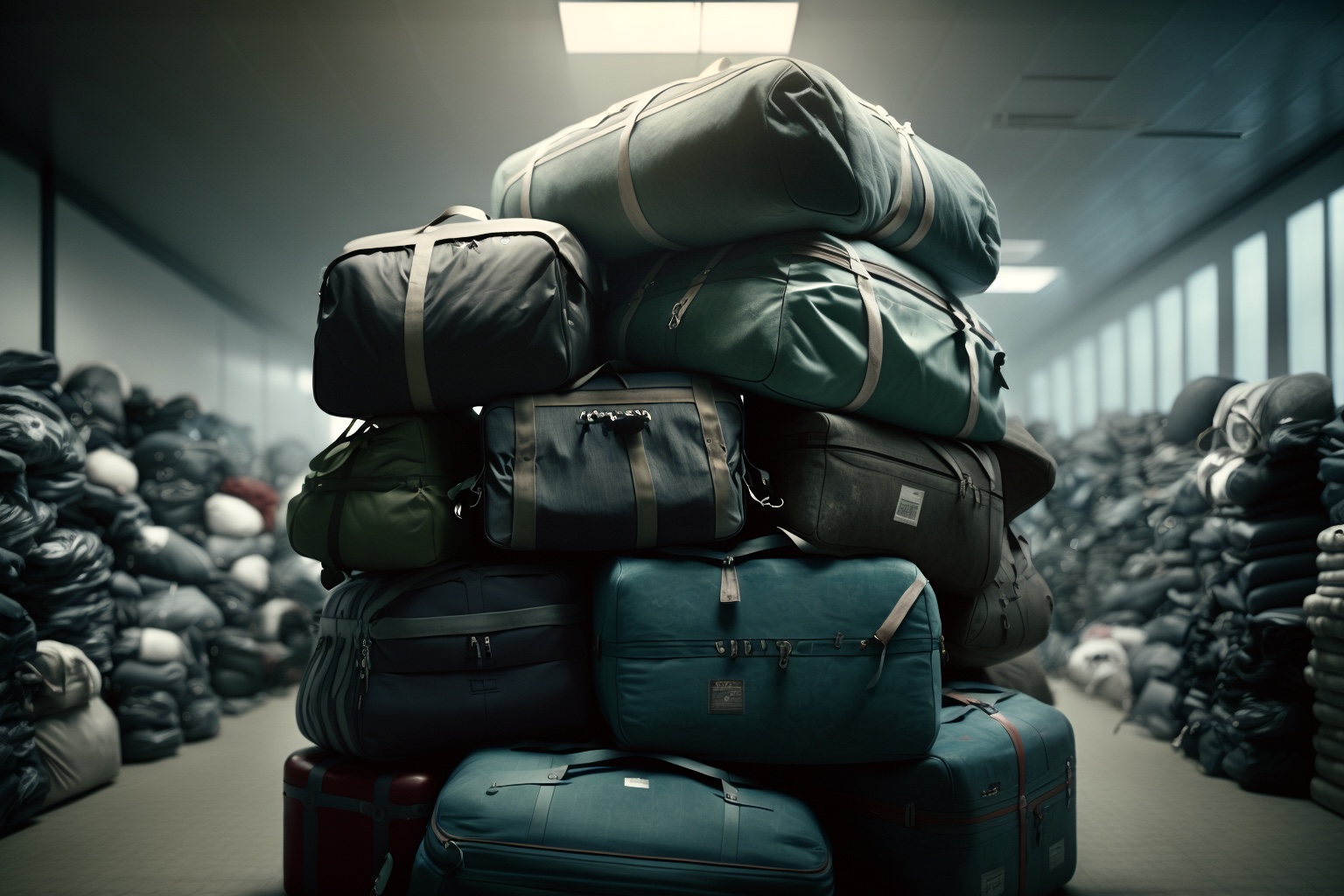Skift Take
Today’s edition of Skift’s daily podcast looks at lost luggage technology, a shipping container hotel, and a massive investment in Indian aviation.

Skift Daily Briefing Podcast
Listen to the day’s top travel stories in under four minutes every weekday.
Good morning from Skift. It’s Tuesday, March 21. Here’s what you need to know about the business of travel today.
Listen Now
🎧 Subscribe
Apple Podcasts | Spotify | Overcast | Google Podcasts
Episode Notes
Luggage delays at airports have made travel chaotic for hundreds of thousands of flyers in recent years, and some experts believe the problem will only get worse with passenger numbers expected to surpass 2019 levels soon. So what are the main cases for those airline debacles? Travel Technology Reporter Justin Dawes examines what drove the wave of disruptions as well as possible solutions to prevent even more delays.
Dawes writes that outdated baggage technology has contributed mightily to luggage delays, noting that systems that transfer bags are typically decades old. Most airlines still track bags with a paper tag containing a barcode. The aviation industry’s struggles have also been compounded by difficulties in relaying critical pieces of data. One travel executive said there’s no standard way airlines and airports share information, with Dawes adding the issues of luggage delays are more pronounced at major hubs.
Meanwhile, Dawes notes several startups are looking to automate baggage technology, one of which is developing robots that could deliver bags to passengers after they land.
Next, we profile Tiny Urban Escapes, Indianapolis’ first Black and female-owned hotel. Contributor Leslie Barrie reports it’s tapping into luxury and sustainability to bring travelers to an overlooked part of the city.
Barrie writes that founder and CEO Robin Staten-Lanier wanted to do something forward-thinking and sustainable when developing the concept for Tiny Urban Escapes, a wellness retreat and hotel that opens this July. So Staten-Lanier chose four upcycled shipping containers to create suites and a glass pavilion to create a green space at the hotel.
Staten-Lanier said she’s working to ensure the hotel benefits its neighborhood as a whole. The Tiny Urban Escapes doesn’t have a restaurant, which Staten-Lanier said is meant to encourage guests to dine at local eateries. She did acknowledge that some local residents have been concerned about the hotel possibly causing gentrification.
Finally, India will invest about $12 billion in its aviation infrastructure to meet the growing demand for air travel in the country, writes Middle East and Asia Reporter Amrita Ghosh in Skift’s India Travel Daily newsletter.
Ghosh reports Indian officials aim to open 70 more airports by 2025 as well as building new terminals. In addition, the country’s civil aviation minister said the number of jets in Indian carriers’ fleet will almost triple in the next five years. India has eased leasing rules for airlines to help them address aircraft shortages.
For more travel stories and deep dives into the latest trends, head to skift.com.
To find these stories and more insight into the business of travel, subscribe to Skift daily newsletter at skift.com/daily.
Skift India Report
The Skift India Report is your go-to newsletter for all news related to travel, tourism, airlines, and hospitality in India.
Have a confidential tip for Skift? Get in touch
Tags: airlines, baggage, hotels, india, luggage, passenger experience, paxex, skift podcast
